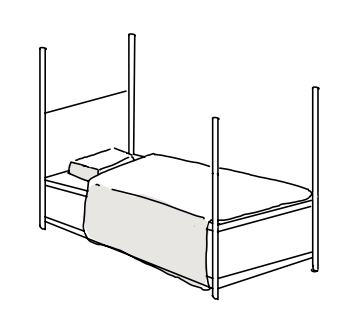Mysteries with Meghan: The Deceptive Duality of CHS’ Coaching
Here at The Wolfpacket, committed investigative reporters work day and night to solve mysteries that have perplexed CHS students for years. This month, The Wolfpacket investigates a question that is always in the back of athletes’ minds: why do coaches act the way they do, and how can they be both so mean and inspiring in a single season?
Every athlete can tell stories about teammates leaving practice in tears, but many can also tell tales about how impactful and inspiring a coach was for them. “I really enjoy practice… I finish every day full of pride and satisfaction even though my sport is really hard, and I think that has a lot to do with how positive the coaches are,” one CHS athlete said.
This is undoubtedly true. High school sports can be the source of some of the happiest memories in the high school experience, and coaches play a huge role in that. However, this isn’t the full story for every athlete.
“Often times when I come to practice I feel optimistic and ready to improve, but it’s hard to stay positive when the coaches constantly critique what my teammates and I are doing, it really takes a toll on our team dynamic,” another CHS athlete said.
Obviously there is a mystery here: where do coaches get their different coaching styles, and how can they be so mean and so inspiring all in the course of the same practice? The Wolfpacket knew what they had to do: they needed to talk directly to the source. So, reporters marched into the practices of different CHS sports teams. CHS softball coach Brian Ota had some answers for The Wolfpacket while he was cleaning up the field after practice. He explained that coaching was something he had always wanted to do.
“Coaching just seemed like it was something I wanted to do when I was a kid, coaches back then were well-respected and I liked the game,” Ota said.
The Wolfpacket was getting somewhere, coaches, in fact, want to be coaches, so if they are mean, it is not because they do not want to be there. This was a major clue, but it still didn’t answer the question. Why can coaches sometimes be mean and yet other times inspiring?
“I just try to get the best out of players… I’ve coached a lot of different places where the talent wasn’t always there, so you had to develop, you didn’t have a choice,” Ota said.
There is a long tradition in coaching that players need confrontation in order to improve: the deeper the emotion scares, the better the athlete.
“If you are afraid of confrontation, you are not going to do very well,” prominent NFL Coach Bill Parcells said in a famous quote. However, high school students are not pro-football players, and most of them probably don’t want to go through an entire day of school just to go to practice so they can be yelled at. But many athletes also want to win games, which puts coaches in a tough position.
Maybe the answer this mystery was much simpler that everyone thought. Maybe coaches are just out there trying their best and trying to help their players in whatever way they can. While athletes today may think yelling or screaming is quite old school (which it is) most of the time the coach is coming from a good place, or maybe they are actually evil monsters; there is no way to know for sure.
Hello there! Our goal is to provide relavent, engaging journalism for readers of all ages. Your donation will support the student journalists of the Wolfpacket at Claremont High School, and will allow us to purchase equipment, print our monthly issues, and enter in journalism competitions. We appreciate your consideration!

Meghan Mason is a senior at CHS, and this is her third year on the Wolfpacket staff. Mason is the Assistant Editor-in-Chief this year, and cannot believe...











